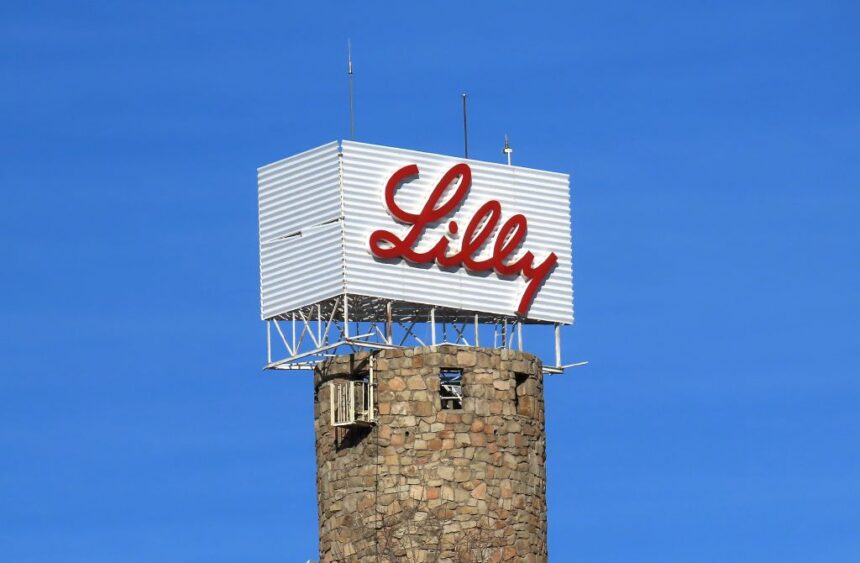Eli Lilly saw its revenues increase 28% year-over-year thanks due to high demand for its diabetes drug Mounjaro.
The pharma giant released its latest earnings report Tuesday morning and recorded quarterly revenue of $8.3 billion along with a net income of $1.7 billion, up 85% year-over-year. Lilly’s earnings per share (EPS) also rose 86% to $1.95.
One of the most significant drivers of Lilly’s growth was its new products division, which contributed $1 billion to revenue by way of Mounjaro’s runaway success on the market. The diabetes drug generated $979.7 million, up from $16 million this time last year.
Additionally, the company’s growth products revenue jumped 16% to $4.93 billion thanks to the likes of Verzenio, Jardiance and Taltz. Lilly also notched $579 million from the sale of rights for Baqsimi during the quarter.
The strength of its topline performance prompted Lilly to raise its year-end guidance, with EPS projected to be between $9.20 to $9.40. Revenue is expected to be between $33.4 billion to $33.9 billion, marking an increased guidance of $2.2 billion.
Lilly’s good fortunes in the weight loss space have been buoyed by Mounjaro but could potentially expand with investigational drug retatrutide.
The company announced in late June that retatrutide achieved weight loss of 24% at 48 weeks and has a similar safety profile to other incretin-based therapies. Lilly stated it will advance the next generation molecule to Phase 3 trials to study its treatment of obesity and related complications.
Outside of the GLP-1 wars, Lilly also released Phase 3 trial data showing that donanemab met its primary endpoint and secondary endpoints in treating early Alzheimer’s disease.
Following a rejection by the Food and Drug Administration for accelerated approval earlier this year, Lilly stated it would proceed with global regulatory submissions as soon as possible and will make another submission to the domestic health agency this quarter.
The company is aiming to compete with Leqembi, the Alzheimer’s treatment from Biogen and Eisai that received traditional approval from the FDA in early July.
“Lilly’s financial results in Q2 were led by Mounjaro sales and a strong performance from Growth Products,” Eli Lilly CEO David A. Ricks said in a statement. “Exciting scientific breakthroughs, such as Trailblazer-ALZ 2 in Alzheimer’s disease and Surmount-3 and -4 in obesity, encourage us to continue to make significant investments that support our new medicines including multiple launches expected by the end of 2023 to help more patients around the world.”
In addition to its robust product sales and promising drug candidates, Lilly had an active quarter on the acquisition front, purchasing Bay Area-based biopharma Dice Therapeutics for $2.4 billion and acquiring type 1 diabetes company Sigilon Therapeutics for $34.6 million upfront.
Weeks after the quarter ended, Lilly also announced that it would buy private clinical-stage biopharma Versanis for nearly $2 billion in an effort to bolster its weight loss drug pipeline.







